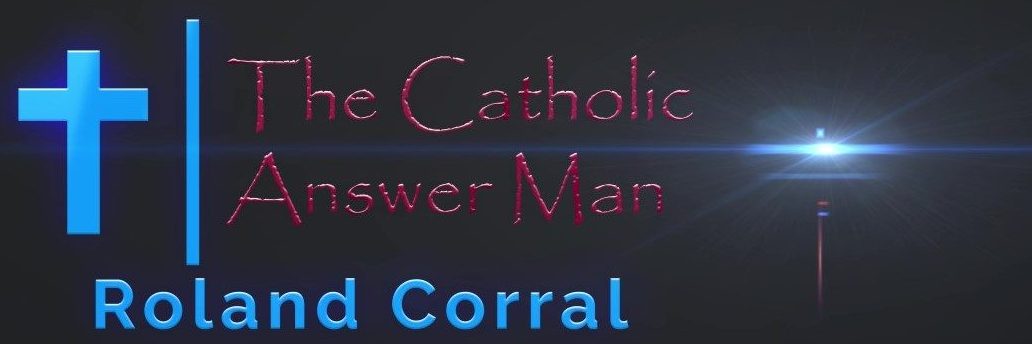Q: Why is the Catholic Bible different from other Bibles?
A: The question might be put this way, “Why is there any other bible other than the Catholic bible?”
Why do I say this? Well, you must understand why the Protestant bible has a different number of books in the Old Testament.
The Protestant Old Testament is based on Hebrew canon used by Hebrew-speaking Jews in Palestine. The Catholic Old Testament is based on the Greek canon used by Greek-speaking Jews throughout the Mediterranean, including Palestine.
The city of Alexandria in Egypt possessed the greatest library in the ancient world and during the reign of Ptolemy II Philadelphus (285-246 BC), a translation of the entire Hebrew Bible into Greek was begun by 70 or 72 Jewish scholars – according to tradition – six from each of the twelve tribes. From this Alexandrian translation (completed between 250-125 BC) we get the term “Septuagint,” Latin for 70 (LXX), the number of translators.
This Greek translation of the Old Testament was very popular because Greek was the most common language of the entire Mediterranean world by the time of Christ. Hebrew was a dying language (Jews in Palestine usually spoke Aramaic), so it was not surprising that the Septuagint was the translation used by Jesus and the new Testament writers. The great majority of the Old Testament quotations found in the New Testament are from the Septuagint. Protestant authors Archer and Chirichigno, for example, list 340 places where the New Testament cites the Septuagint but onloy 33 places where it cites from the Hebrew canon rather than the Septuagint. *1 By this count, the New Testament writers quote from the Septuagint over 90% of the time. Remember also that the entire New testament was written in Greek.
The Hebrew canon continued to be debated by Jewish rabbinical schools into the third century. *2 Eventually, however, rabbinic Hebrew canon found in the Septuagint-Wisdom, Sirach, Judith, Baruch, Tobit, and 1 & 2 Maccabees (as well as portions of Daniel and Esther)-chiefly on the grounds that they could not find any Hebrew versions of these books which the Septuagint supposedly translated into Greek. *3
Since the Christian Church had used the Septuagint from the beginning, it simply ignored the decisions of later rabbinic Judaism and continued to use the Septuagint. When the Church officially determined which boods comprise the canon of te Bible (Councils of Hippo, AD393, and Carthage, AD 397), it approved the 46 books of the Septuagint as the canon for the Old Testament. For sixteen centuries the Christian Old Testament was a matter of uncontested faith. Each of the seven rejected boods is quoted by early Church Fathers as “Scripture” or as “inspired,” right along with the undisputed books. *4
In 1529, Martin Luther, proposed to adopt the 39-book canon used by the rabbinic Judaism as the Old Testament canon. Luther justified his decision to delete seven books from the Old Testament by appealing to St. Jerome who, around ad 400, had expressed concerns that these Greek books had no Hebrew counterparts. However, research into the Dead Sea Scrolls found at Qumran has discovered ancient Hebrew copies of some of the disputed books. *5, Making thier rejection unsupportable on those grounds. The principle reason Luther seems to have opposed the additional boods of the Christian Old Testament is that they taught doctrines he did not like, such as praying for the dead (2 Maccabees 12:42-45).
But here is the real question: Which Old Testament would you rather use, the Old Testament used by Jesus, the New Testament writers and the early Church, or the Old Testament used by later Jews who had rejected Christ and persecuted Christianity?
*1 Gleason Archer and G.C. Chirichigno, Old testament Quotations in the New Testament: A Complete Survey (Chicago, IL: Moody Press, 1983), xxv-xxxii.
*2 Gedaliah Alon, The Jews in their Land in the Talmudic Age (Cambridge, MA: Harvard University Press, 1996), 272-276.
*3 The rabbinic Jews used four criteria to determine their canon. They accepted only those books which were: (1) written in Hebrew; (2)in conformity with the Torah; (3) older than the time of Ezra (c. 400 BC); and (4) written in Palestine.
*4 Some of the Fathers include Polycarp, Irenaeus, Clement, and Cyprian. For a collection of patristic quotations from each of the disputed books, see “The Fathers Know Best: Old Testament Canon” in the October 1993 issue of This Rock magazine (Volume 4, No. 10), 25-27.
*5 New Catholic Commentary on Holy Scripture (Nashville, TN: Thomas Nelson, 1975), 22. Dead Sea Scroll esxpert James C. VanderKam says Hebrew version o fTobit, Sirach, and Psalm 151 (found only in the Septuagint) were discovered at Qumran. The Dead Sea Scrolls Today (Grand Rapids, MI: Eerdmans, 1994), 34-36.
This answer was researched and provided in it’s entirety by San Juan Catholic Seminars “Beginning Apologetics 1 ‘How to Explain and Defend the Catholic Faith'”. page 10 The Canon of the Bible – The Old Testament.
“Always be prepared to make a defense to anyone who calls you to account for the hope that is in you”
1 Peter 3:15
